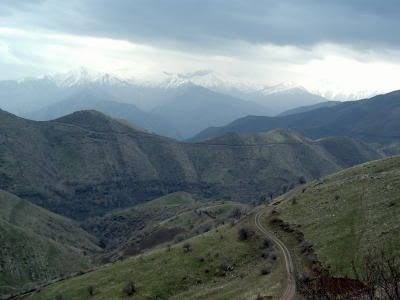 failed, as the White House released a grim new intelligence assessment that has forced the administration to consider more aggressive measures inside Pakistan
failed, as the White House released a grim new intelligence assessment that has forced the administration to consider more aggressive measures inside PakistanThe intelligence report, the most formal assessment since the Sept. 11 attacks about the terrorist threat facing the United States, concludes that the United States is losing ground on a number of fronts in the fight against Al Qaeda, and describes the terrorist organization as having significantly strengthened over the past two years.
In identifying the main reasons for Al Qaeda’s resurgence, intelligence officials and White House aides pointed the finger squarely at a hands-off approach toward the tribal areas by Pakistan’s president, Gen. Pervez Musharraf, who last year brokered a cease-fire with tribal leaders in an effort to drain support for Islamic extremism in the region.
“It hasn’t worked for Pakistan,” said Frances Fragos Townsend, who heads the Homeland Security Council at the White House. “It hasn’t worked for the United States.”
While Bush administration officials had reluctantly endorsed the cease-fire as part of their effort to prop up the Pakistani leader, they expressed relief on Tuesday that General Musharraf may have to abandon that approach, because the accord seems to have unraveled.
 But American officials make little secret of their skepticism that General Musharraf has the capability to be effective in the mountainous territory along the Afghan border, where his troops have been bloodied before by a mix of Qaeda leaders and tribes that view the territory as their own, not part of Pakistan.
But American officials make little secret of their skepticism that General Musharraf has the capability to be effective in the mountainous territory along the Afghan border, where his troops have been bloodied before by a mix of Qaeda leaders and tribes that view the territory as their own, not part of Pakistan.“We’ve seen in the past that he’s sent people in and they get wiped out,” said one senior official involved in the internal debate. “You can tell from the language today that we take the threat from the tribal areas incredibly seriously. It has to be dealt with. If he can deal with it, amen. But if he can’t, he’s got to build and borrow the capability.” More




